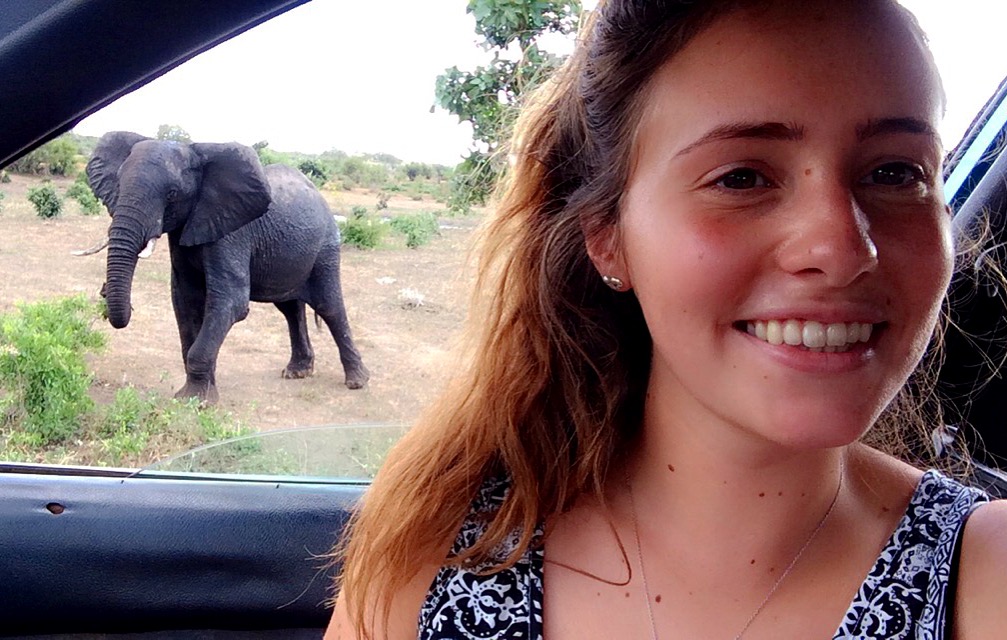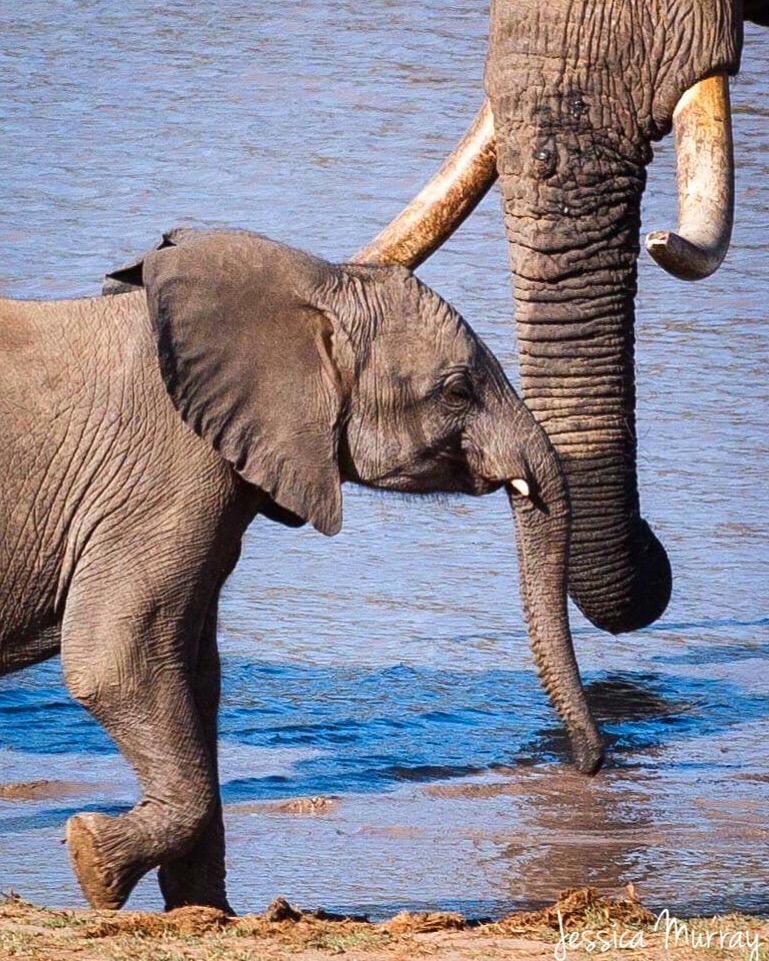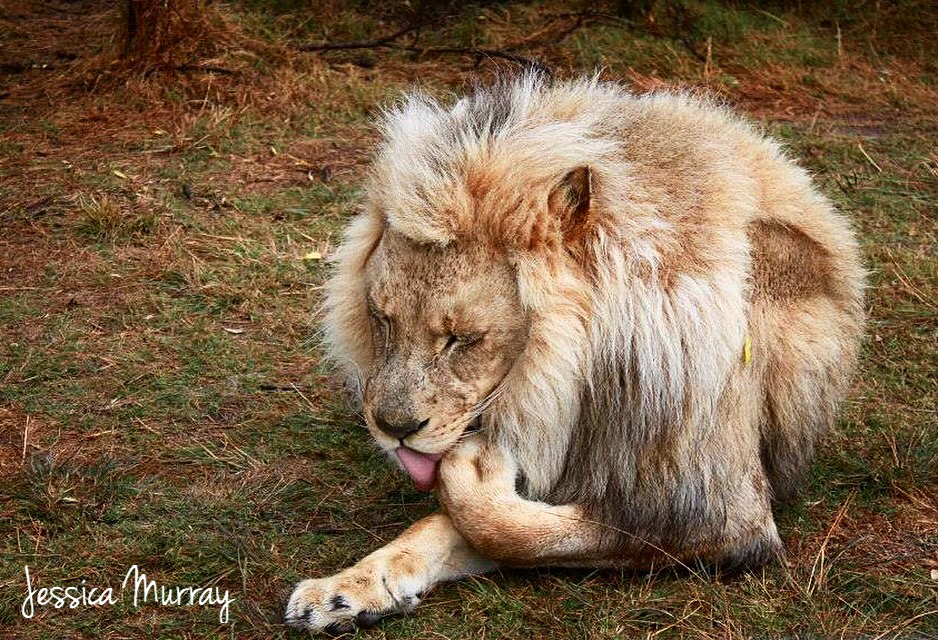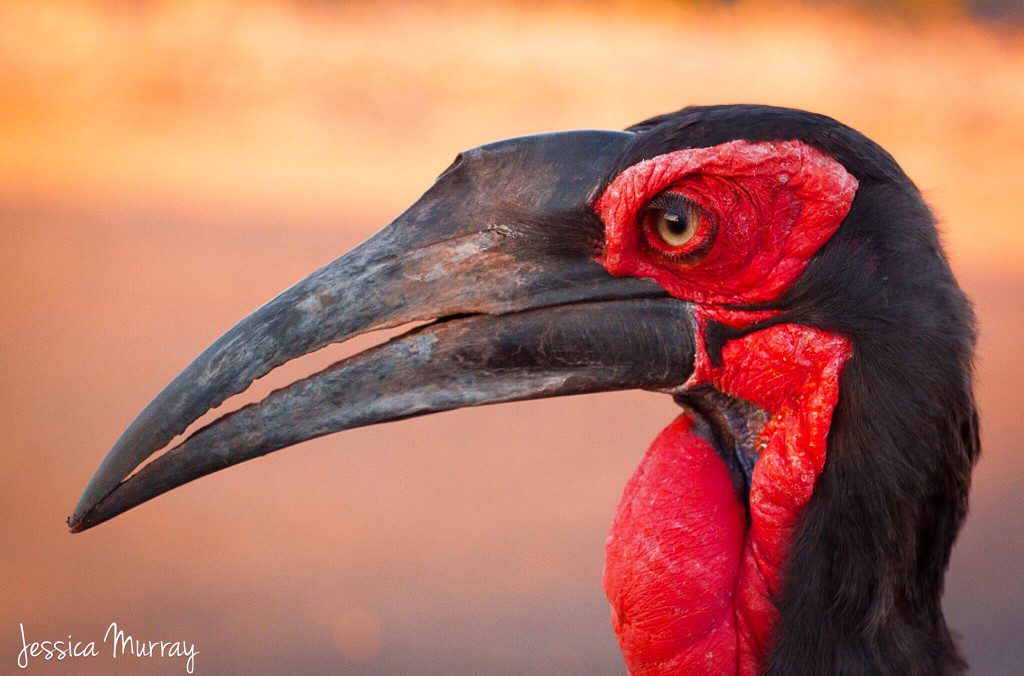After University Jess wasn’t sure what she wanted to do, so she quit her job at Topshop to have the experience of a lifetime studying wildlife in the African Bush. At the time she could never have imagined how much this trip would change her life, but now she is a fully-fledged Wildlife Conservationist and has even had her work published by Africa Geographic, BBC Wildlife and many more!
With the news of more animals becoming extinct, we thought it was time we sat down with Jess to hear more about why she’s fallen in love with wildlife and what we can do to protect it.
First of all, what is a wildlife conservationist?
A wildlife conservationist is someone who works to conserve and protect the natural world. This includes everything from huge mammals to tiny insects, as well as the land and plants of a certain area.
Okay, that sounds pretty straight forward! How did you get in to this kind of work?
I have always loved animals, and when I travelled to a volunteer project in South Africa for the first time when I was 19, I completely fell in love with Africa.
Once I finished my degree in journalism I realised that I really wanted to make a positive difference in this world and do something that I was truly passionate about. I combined my journalism skills of writing and photography and took the leap of quitting my job and studying wildlife filmmaking and training to become a nature guide, along with conservation and animal behaviour.
I think when I was sent to film undercover as part of a wildlife documentary and witnessed lions and hyenas in horrific conditions, I really felt the pull to help the natural world. And it’s all kind of propelled from there!
Wow that must have been crazy! Do you have a favourite animal?
Elephants! I absolutely adore elephants and have been fascinated by them since I was very young. In fact, the day that I was born my Nanny came to the hospital to see me with a present of a cuddly elephant, so in a way, I feel like I was always destined to work with them.
I’ve been incredibly blessed to be able to work with elephants quite a lot and study their behaviour. They are incredible creatures, and I relate to them a lot, which is why I am so drawn to them. They are very family orientated, and are continuously learning as they go through life. They can live up to around 70 years old in the wild and it really is true that an elephant never forgets!
There are so many fascinating details about them, but one that shocks people the most is how quiet they are. Because they are so big, (the males (bulls) can weigh up to 6 tonnes!) people expect to hear them stomping from miles away, but because they have huge feet with soft soles, this balances out and cushions their weight, which makes them silent as they walk.
So a true gentle giant! Have you ever had any near-death experiences with the not-so-gentle creatures when out in the wild?
I’ve had a few potentially dangerous experiences living out in the African bush. When I was studying for my nature guide qualification we were staying in tents in the middle of an unfenced game reserve. This means that there were no fences separating me from lions, elephants, crocodiles, hyenas…you name it! It was an incredible feeling to be so at one and equal with nature, but you do have to always be wary and alert.
As there were no fences, during each night we each had to do an hour of night-watch. This consisted of keeping the fire going for one hour, whilst shining a spotlight around the area every few minutes looking out for any reflecting eyes too close to camp.
During my first evening of doing this, my shift was at 2am-3am. So I stumbled out from my tent with sleep in my eyes and wearing my Batman pyjamas. Once I had reached the area where the fire was, my campmate who had woken me up shone the torch next to my tent. I couldn’t believe it but about 5 metres next to my tent that I had just walked out of was a huge male hippo – the most dangerous animal in the world!
This first experience really opened my eyes to understanding that we really can live at one with nature if we know what we are doing, have genuine intentions and leave them in peace.
There was also an incident when I got stung by one of the most venomous fish in the world – a stonefish in Barbados. I stepped on its dorsal spike, which is full of venom! It was all very dramatic and God was definitely watching over me that day more than usual!
So I guess animals just want to be close to me! But honestly, always remember that all animals are a lot more scared of you than you are of them, and as long as you don’t threaten them or invade their space, they won’t do anything to you.
Yikes!! That’s sounds terrifying! We hear a bit about ‘endangered species’ but what does ‘endangered’ mean and what are some of the animals that fall in to this category?
A species is given the label ‘endangered’ when their numbers are rapidly declining and there are fears of them going extinct if something is not done. So the word literally means that a species is ‘in danger’.
All species are given a conservation status by the IUCN (International Union for Conservation of Nature). There are actually 9 different categories that animals can fall into, ranging from least concern to extinct, but the main ones that we need to worry about are those in the ‘critically endangered’ category. There are currently many species in this category, including Amur Leopards, Western Lowland Gorillas and Leatherback Sea Turtles.
How do you feel about zoos? Is it okay to go for educational purposes to see animals we would probably never have the opportunities to see otherwise, or do you disagree with animals being held in captivity?
Personally, I do not like zoos. It is very upsetting for me to see animals in enclosures, thousands of miles away from their natural habitats after seeing them so happy in their rightful place.
A lot of zoos do not conserve the animals, and use them purely for profits whilst keeping the animals in terrible conditions. Also, you cannot learn much from these captive animals, as their behavior is not accurate compared to if they were living their natural life in the wild. It saddens me that a lot of animals are born into captivity and may never have stepped on real grass.
However, there are a few zoos that have helped to conserve species that are on the brink of extinction by breeding a species successfully and releasing the new generation into the wild.
That’s good to know that there are a few that are actually helping animals rather than just using them for show! Are there any changes that we can all make in our day-to-day lives to help wildlife?
Yes definitely! There are small, minor changes that you can make to your daily life that are simple and easy. Things such as recycling as much as you can and buying shopper bags instead of using plastic bags can go such a long way!
Current plastic pollution statistics mean that one rubbish truck full of plastic is being dumped into the ocean every single minute, so you can imagine how much of a difference it will make if every person reduced their plastic usage with simple things like shopping bags and recycling.
As well as this, if you have a garden you can give any old bread that you would normally throw away to the birds, or put out a bird feeder full of birdseeds. Doing this in Britain has saved over 9 million birds in 2016!
Wow that’s a lot of birds! In what ways can we get involved with wildlife conservation?
A lot of people think that they need money to protect wildlife, by either donating to big charities or travelling across the world to volunteer, but that’s not true. So here’s a quick list of the best things that you can personally do to protect wildlife:
- Make a pledge never to buy any ivory products
- Sign online petitions to shut down circuses and other facilities that involve animal cruelty – I often post these on my social media accounts and you would be surprised at the power of social media
- If you do travel to anywhere with animals, do your research about the place and ask the right questions
- Never go to any places or volunteer experiences that encourage animal interaction such as lion cub petting or elephant riding
- Spread awareness by telling all of your friends about these different points and posting on social media
That’s great, we will definitely do those things! Is there anything else you would like to tell our readers?
Each and every animal that we share this earth with is amazing in its own way. We were all created for a purpose, and that is the same for animals. It is important for us to protect them because humans could not survive without them.
If you have any questions you would like to ask Jessica, you can contact her via her Facebook Page and to keep up to date with her adventures be sure to follow her on Instagram!






